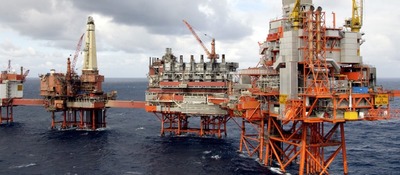
Global Oil Economics and Strategic Planning
INTRODUCTION
The business of oil and gas is multifaceted, technically complex, highly capital intensive and often confronted with potential risks and uncertainties. Today’s oil companies are dealing with ever increasing levels of complexity, price volatility and competition. The innovative technologies in the recovery of oil are also changing the landscape of petroleum industry. Integration of refining and petrochemicals to achieve greater efficiencies is yet another critical factor in the business. Managing international supplies, investment decision-making, refining and trading of oil & gas require several cross-functional skills.
To achieve maximum effectiveness, professionals must continually expand their business knowledge and sharpen their skills. The Global Oil Economics and Strategic Planning training course is designed to achieve this goal in a time efficient manner. This training course covers essential skills such as global oil and gas industry economics incorporating the uncertainties of the prices oil and gas.
Participants attending Orbit Horizone’s Global Oil Economics and Strategic Planning training course will gain the following competencies:
- Develop many management skills that are necessary in the currently low-for-long oil price scenario of the petroleum industry
- Strengthen the understanding of the business economics and investment decision-making
- Master the various tools and techniques in petroleum economic evaluation
- Understand the art and science of investment decision making in the international petroleum industry
WHO SHOULD ATTEND?
This Orbit Horizone Global Oil Economics and Strategic Planning training course designed to suite a wide range of delegates, but will be specifically beneficial to:
- Business Development team members
- Corporate Planning professionals
- Compliance officers
- Contract Negotiators
- Geoscientists & Engineers
- Bankers & Accountants
- Auditors
- Government Regulators
- Tax & Finance Advisors
- Equity & Financial Analysts and Bankers
- Joint Venture Officers
- Lawyers & Law Firms’ Personnel
- Those who moved from elsewhere to Oil, Gas, LNG
PROGRAMME OBJECTIVES
This unique Orbit Horizone training course on Global Oil Economics and Strategic Planning aims to enable participants to achieve the following objectives:
- Fully understand the petroleum industry dynamics including geopolitics, supply-demand and crude oil prices dynamics
- Successfully benchmark petroleum project economic evaluation in a consistent manner
- Skills to conduct strategic planning to handle challenging situations in oil & gas
- Understand the strategic hedging of oil price-risk with Upstream and Downstream Management
- Global oil economics, project valuation and profitability benchmarks
TRAINING METHODOLOGY
The Global Oil Economics and Strategic Planning training course will combine presentations with interactive practical exercises, supported by video materials, activities and case studies. Delegates will be encouraged to participate actively in relating the project evaluation and investment decision-making of oil, gas and LNG projects.
PROGRAMME SUMMARY
Orbit Horizone’s Global Oil Economics and Strategic Planning training course covers in-depth analysis of the costs of oil production on-shore, offshore, conventional, non-conventional in various parts of the world and highlights the accounting breakeven prices for small producers to the fiscal breakeven process for large exporting nations. This is crucial towards understanding of petroleum industry dynamics, and in understanding crude oil price movements. By fully understanding these issues it becomes possible to achieve economic efficiencies for NOC’s develop long-term strategic plans and evaluate Enhanced Oil Recovery projects.
PROGRAM OUTLINE
Day 1 : Understanding the Essential Elements Of Petroleum Industry
- Global Energy Statistics
- Global oil & gas reserves and production by region, by countries
- Classification of reserves, and estimation of reserves by key methodologies
- The E&P Company Cash flow and Business Model
- Capital Expenditure, CAPEX: Front-End, during Development and Production
- Geological and Geophysical Costs, Breakdown of Drilling Costs, Facilities Costs
- Production Operations and Operating Expense (OPEX)
- Field Production Curve – cash flow curves for projects
- Cash Flow Model for E&P Companies
- Reserves Estimation Methods, Petroleum Economics and Value Addition
- Decline Curve Analysis, forecasting production techniques
- Measures of Efficiency-Payback, NPV, IRR, ROE, ROA, PI, LRMC
- Value Addition benchmarks prioritized
Day 2 : The International Oil Industry - Challenges & Opportunities
- Identifying the Structural Changes Facing on the Oil Companies
- Examining the Future Trends in the Oil and Gas Economy
- Analyzing the Challenges and Opportunities Presented by the Emerging Competitive Environment in the International Petroleum Industry
- Building of Strategic Alliances
- Review and Analyses of Successful Alliance in the Industry
- Future Trends in the Oil and Gas Economy
- Strategic Alliances: Emergence of Mega-National Oil Companies
- New Oil Pricing Mechanisms
- Increasing Global Competition in E&P
- Downstream Integration of OPEC Nations
- Changes in International Petroleum Agreements
- Production Sharing Agreements, Concession Agreements & JV agreements
- Greater Emphasis on the Environment
- International Natural Gas Market – the LNG Growth
- The Facts on LNG
- LNG Supply / Demand Dynamics
- New Financing Mechanisms in the Petroleum Industry
- Privatization of NOCs
- Organizational Changes
- Growth in Oil Products vs. Crude Oil Exports
- Mergers and Acquisitions
- Globalization of NOCs
- Growing Role of Oilfield Service Companies
- Conventional & Non-Conventional
- Importance of Territorial Jurisdiction in Offshore Areas
- Growth of Non OPEC Production
Day 3 : The Corporate Structures, Strategic Alliances & Global Regulations
- Oil Companies – Corporate Planning & Strategic Alliances
- Early Discoveries, IOCs, Mega national Oil Companies, their strengths
- Need for Collaboration between IOCs & NOCs
- New Management Techniques to Succeed in Competitive environment
- Oil Price Dynamics, Characteristics, and Issues
- Crude Oil Benchmarking
- Price Assessments, Price Reporting Agencies and their critical role
- Global Regulations
- International Natural Gas Trade and Pricing
- Impact of OPEC in the International Oil Economy
- OPEC: past, present & future role
- Role of Non-OPEC Oil Production
Day 4 : Petroleum Project Evaluation and Investment Decision-Making
- Fundamental Considerations in Petroleum Project Evaluation
- Fundamental Considerations in Investment Decision-making
- Project Evaluation methods and Decision-Making Techniques
- Impact of several Factors on Project Economics
- The concept of a Project’s Optimum Economic Life
- Supply-Demand Concepts
- Global Supply Demand of Oil and the Sustainable Prices
- Treatment of Inflation in Project Evaluation
- Investment Decision-Making Exercises and Case Studies
- Crude Oil Production Dynamics – Global, Regional & OPEC Production Scenarios
- Crude Oil Price Dynamics
- Profitability Indicators for Oil & Gas Business
- Factors influencing a Project`s Economics Life Cycle
- Discounted Cash – flow analysis: NPV, PVR, IRR, GROR
- Comparison and Investments Selection Criteria
- Weighted Average Cost of Capital as an Investment Criterion
- Impact of Inflation, Taxation & Amp; leveraging on petroleum project economics
- Depreciation Methods used in the Petroleum Industry
- Optimum Economic Life
- Leasing vs. Buying Decision
Day 5 : The Petroleum Industry Dynamics and the Art & Science of Economics
- Crude Oil Production Dynamics – Global, Regional (North America, OECD, Russia, Far East Asia and China)
- OPEC Production Scenarios
- Crude Oil Price Dynamics
- Corporate Portfolio Management and Maximize Returns
- Risk & Uncertainty Analysis in Capital Investments
- Evaluate each Project Consistently
- Evaluate Projects by Risk-based Economics
- New Technologies
- Management Skills needed to raise the Bar
- Concluding Remarks
| رقم الدورة | التاريخ | تاريخ الانتهاء | عدد الأيام | المكان | الطلبات |
|---|




